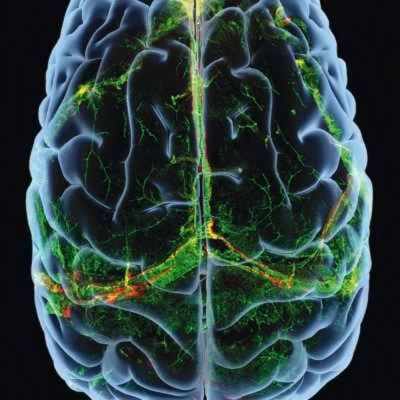BrainPod is the podcast from the journal Neuropsychopharmacology, produced in association with Nature Publishing Group. Join us as we delve into the latest basic and clinical research that advance our understanding of the brain and behavior, featuring highlighted content from a top journal in fields of neuroscience, psychiatry, and pharmacology. For complete access to the original papers and reviews featured in this podcast, subscribe to Neuropsychopharmacology. Hosted on Acast. See acast.com/privacy for more information.
http://www.nature.com/npp/podcast/index.html
Gesamtlänge aller Episoden: 9 hours 32 minutes
Sex differences in appetitive and reactive aggression
Maladaptive aggression, while not a diagnosable neuropsychiatric disorder on its own, often presents as an important comorbid condition with other neuropsychiatric disorders. But while both men and women can and do display aggression, there’s been a bias to thinking of aggression, in both its adaptive and maladaptive forms, as a male behavior...
What’s wrong with my experiment?: The impact of hidden variables on neuropsychopharmacology research
Sometimes, when researchers are conducting an experiment, the results are confusing. Maybe the control group of animals doesn’t behave the way a control should in theory be behaving. Maybe a researcher repeats a study and sees results that are unusually different from the first time around...
A scientific approach to navigating the academic job market
Kirstie Cummings and Sofia Beas are both new assistant professors in the department of neurobiology at the University of Alabama, Birmingham. When they met, they discussed the job application process, their support network, and their own personal processes, and they decided to write an article that could serve as a resource for candidates from different backgrounds, many of whom might not have the same resources that Dr. Cummings and Dr. Beas did...
Identification of THC impairment using functional brain imaging
Driving while under the influence of THC, known as drugged driving, is becoming more of an issue as more states legalize cannabis for both medical and recreational use around the country. THC is known to impair cognitive and psychomotor performance and thus impair driving. Jodi Gilman is a neuroscientist and an associate professor of psychiatry at Mass General Hospital and Harvard Medical School, and she’s one of the authors of a new study in the journal Neuropsychopharmacology...
Evolution of prefrontal cortex
In the past, there had been a school of thought that looked at evolution linearly — that is, you could in theory draw a line among mammals as they evolved, and so, say, rodent brains would basically be less evolved primate brains. That turns out not to be true; evolution is much more like a branching tree, and each branch then goes on to develop independently, sometimes in parallel. Some groups of animals such as primates can evolve features of their brains that other groups simply don’t have...
Astrocyte-neuron signaling in the mesolimbic dopamine system: the hidden stars of dopamine signaling
Star-shaped cells called astrocytes are the most abundant cells to be found in the human brain. In the past, they’d been thought to play a supporting role to neurons, such as providing metabolic support, but recently they’re also emerging as stars of i...
Neurobiology of loneliness: a systematic review
Loneliness is a subjective experience, but neuroscientists define it as a distress that arrives from a discrepancy between perceived and desired social relationships. There may be an evolutionary benefit to the feeling of loneliness; we’re a social spe...
Medial orbitofrontal cortex dopamine D1/D2 receptors differentially modulate distinct forms of probabilistic decision-making
It’s known that dopamine transmission in the brain, particularly in the frontal lobes, can affect decision-making and can regulate choices when it comes to actions and rewards. But the effect of dopamine transition in the medial orbital frontal cortex ...
Addiction as a brain disease revised: why it still matters, and the need for consilience
Nearly 25 years ago, a paper was published about addiction that transformed the field. The director of the US National Institute on Drug Abuse at the time called addiction a “brain disease,” and he wrote a paper articulating this position and the agend...
Big data in psychiatry: multiomics, neuroimaging, computational modeling, and digital phenotyping
The world of medicine has been changing rapidly due to the increasing use of ‘big data.’ And there’s been a major revolution in this approach in neuroscience and psychiatry as well: computing power, sample sizes, neuroimaging technologies, digital appr...
